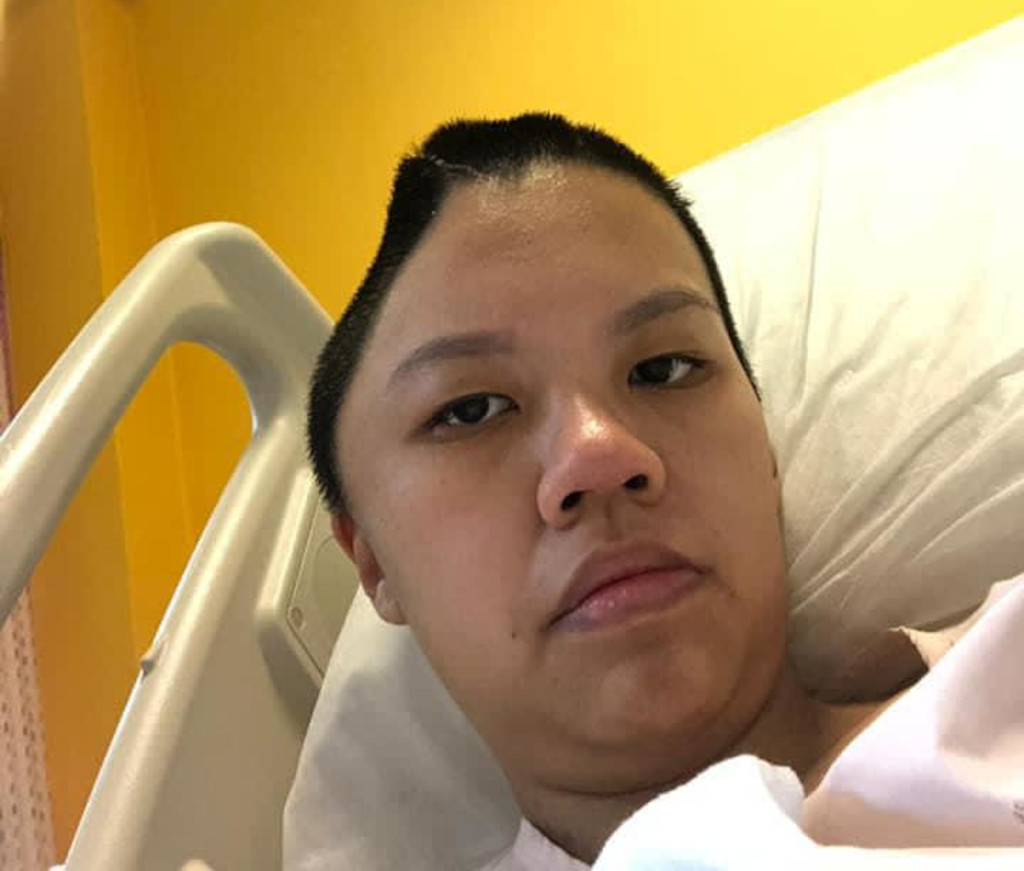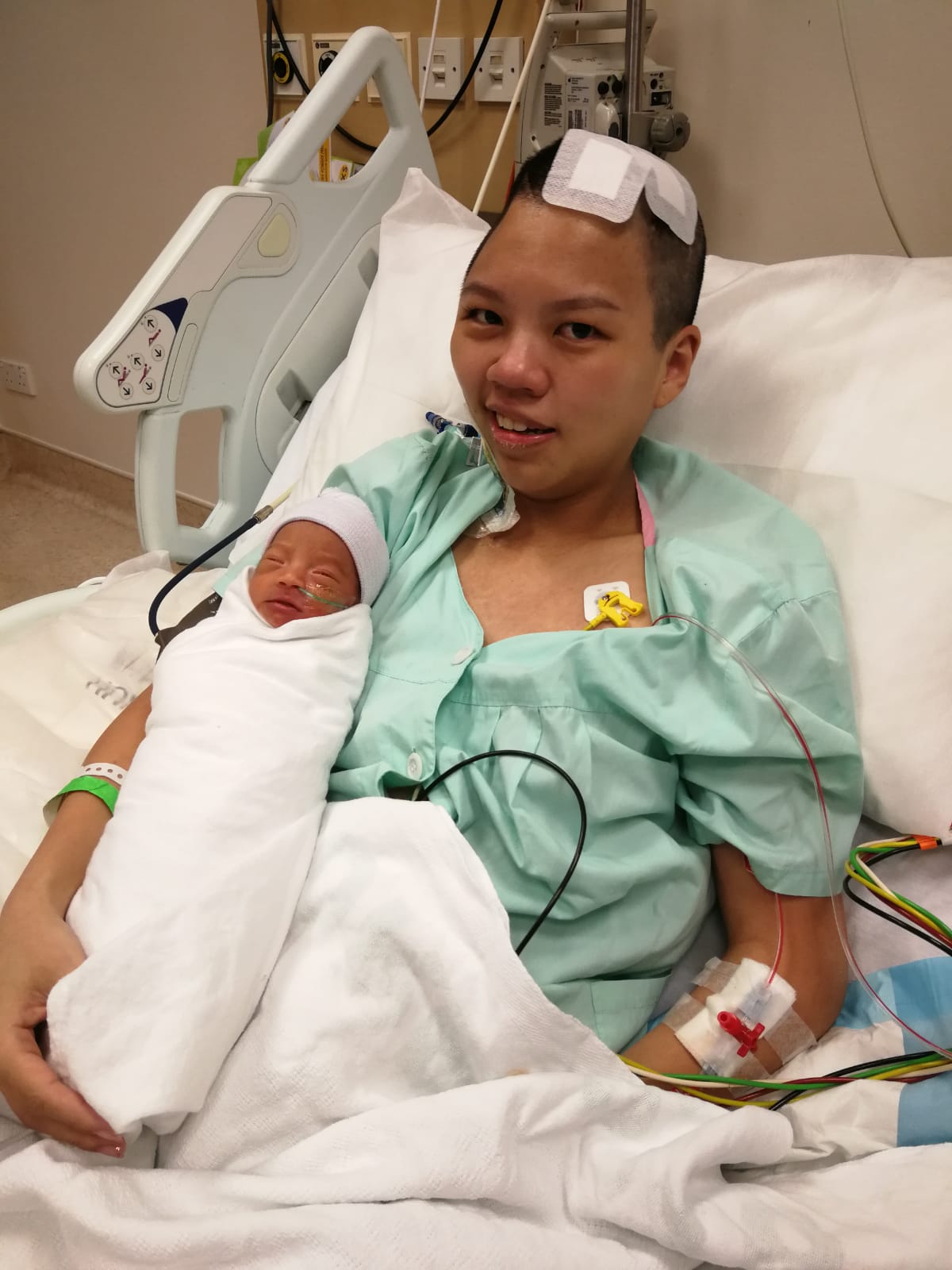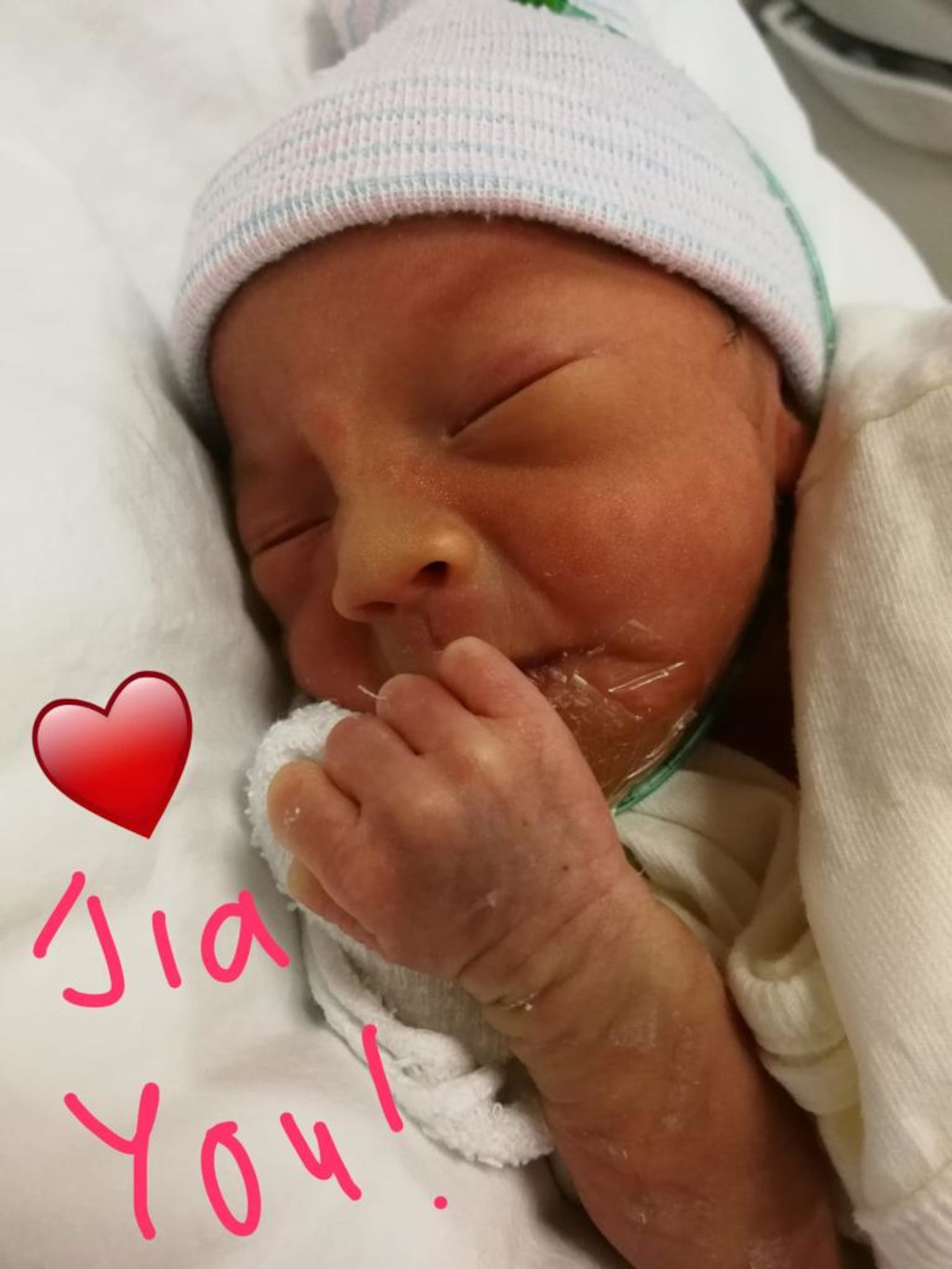SingaporeMotherhood | Pregnancy
May 2022
She Suffered a Stroke while Pregnant at Seven Months

Like any other young mum, motherhood means love, family, and happiness for 34-year-old financial services advisor, Joy Chia. She met her husband-to-be in 2002, and they tied the knot in 2014. Two years later, baby Shernice came along. That first pregnancy had been pretty uneventful, so when she found herself expecting number two, Joy could not be happier. What she wasn’t to know was that she would suffer a stroke while pregnant…
Unexpected Emergency
“I can still vividly recall how in August 2019, I was at a mall with my mother, husband, and elder daughter. We were having a coffee break when I suddenly suffered from a bad headache. It felt as though my head was going to explode. It never occurred to me that it was a stroke.
My mother asked my husband to send me to a nearby GP clinic as I was about seven months pregnant. The heavy belly, coupled with the unbearable pain in my head, made it difficult to walk. Before we managed to get very far, I fainted in the mall. The mall’s security guard helped to call an ambulance and they rushed me to Khoo Teck Puat Hospital (KTPH).

I was only semi-conscious throughout — my husband later related how the doctors immediately called for CT and MRI scans. Afterwards, they explained to my family that I was having a stroke, and they had to perform emergency surgery to cut off a portion of the right side of my skull to relieve pressure on my brain.
(See also: Craniosynostosis Shaped Her Little Girl’s Head, but Didn’t Change Her Big Heart)
My husband and other family members had a hard time absorbing this. How could I be talking to them happily one moment, collapse from a stroke in the next second, and suddenly need such a major surgery?
Furthermore, though I went for regular check-ups during my pregnancy, my gynae didn’t find any risk factors or underlying medical conditions that might have increased my risk of stroke while pregnant. There was also no family history of strokes. In fact, the doctors are still unaware of what could have caused me to suffer a stroke while pregnant.
Saving Mother and Baby
As KTPH does not have a gynaecology department, they transferred me to NUH the following day. They performed the surgery on my skull while my baby was still in my womb as it was too premature to deliver her. However, 11 days later, they decided an emergency C-section was necessary.

As a mother, all I wanted was to ensure the safety of my child, but I understood that she needed to be delivered early to protect her and also to allow me to receive treatment. Thankfully, the C-section went smoothly. Thereafter, they put me on life support for about a week.
(See also: Caesarean Delivery – What Really Happens during Your C-section?)
Thankfully, there was no direct consequence of my stroke on Baby Bernice’s health, apart from being born premature. But she still had to be in the NICU for a month. In the meantime, I had to be transferred to Alexandra Hospital for rehab.
Being away from my baby allowed me to concentrate on physio while my husband and mother took care of her and my elder daughter. I missed her so much, but I knew I had to recover faster and get stronger for her. My daughters were my main source of motivation.
I believe it was a really challenging time for my husband as well, running from one hospital to the other, having to cope with a newborn and being there by my side to support my recovery. I’m so grateful for my support team — my husband, my family, and friends — who helped see me through this period.
In Recovery Mode
I am also very thankful to the doctors, nurses, and physiotherapists who aided me in my recovery. With the help of these medical professionals and the support of my loved ones, I recovered quite quickly. Even before my official discharge, I was able to swallow, raise my left arm, and walk without a walking aid.

When I was wheeled into my first physio session, I remember bursting out in tears. I was overwhelmed with emotions, and I knew that the road to recovery was going to be long and tough. Basically, I was quite emotional through my various therapy sessions as I couldn’t really accept what had happened, or the fact that I was now a stroke survivor.
(See also: Breastfeeding (in a Coma) Saved My Life)
My therapist assured me that if I followed his instructions, I would be able to walk in one month, and I did. He even joked that the physio room was my new ‘office’ where I must work hard, so that I can get back to walking and return to my family and work life.
Aside from physio for my mobility, there was also occupational therapy and speech therapy. Sometimes I would cry during occupational therapy, like once when I was practising buttoning shirts. It was hard to accept that I was unable to do something so simple that I previously did without thinking. I’m glad that my therapists were all really encouraging.
New Lease of Life

Both motherhood and being a stroke survivor have made me relook at my priorities; life is too unpredictable. I am more conscious about health and go for regular full body check-ups at least once a year. I also exercise more regularly now and hope to raise more awareness about the importance of exercising frequently. There are a lot of videos that can help!
Given this second lease of life, I am intentionally living every moment to the fullest. I have changed my mindset towards work, consciously slowing down my pace of working. I treasure my time with family and friends more and will not be pressured to achieve any awards at work.
(See also: Work-Life Balance for New Mums!)
I joined Singapore National Stroke Association’s befriender program as they are the only one that have young stroke survivor support group, a platform that allows stroke survivors and caregivers to share their advice and concerns. I am glad to be able to share my personal experiences to increase awareness about strokes.
Most importantly, I want my children to be healthy and happy. My elder girl is really sweet, and she never fails to make me smile and laugh. When I play with my girls, I will try to use my left hand. If I can complete a task successfully, Shernice will say ‘Good job, Mummy!’ If I don’t, she will say ‘Come on, Mummy, you can do it!’
Being able to do things independently again makes me a happy and proud mother, since I am able to help my children, such as bathing and dressing them. The joy of journeying with small humans is so amazing. I love being with them — small humans with big hearts, loud voices, and contagious laughter.”

Having a Stroke while Pregnant — What You Should Know
According to Associate Professor Deidre Anne De Silva, Head and Senior Consultant, Department of Neurology, National Neuroscience Institute at Singapore General Hospital Campus, having a stroke while pregnant is rare, and the impact on the baby depends on the stage of pregnancy and mother’s condition. For the mother, stroke severity can vary and it depends on the extent of the brain damage and resulting complications. The mother’s stroke can also affect the foetus/infant, especially if it is particularly severe. In some instances, it may require premature delivery.
The underlying causes of stroke while pregnant differs, with some unusual causes being more common such as stroke due to blockage of veins. Pre-eclampsia which is a condition in pregnancy associated with high blood pressure can also be a cause of stroke. For some, it may be due to the more typical risk factors such as smoking, high blood pressure, high cholesterol, diabetes, and unhealthy lifestyle habits. A small proportion may have a genetic basis.
(See also: Gestational Diabetes 101 – Are You at Risk?)
In pregnancy, stroke may present with headache, drowsiness, confusion, and vomiting. Other common signs include face drooping, arm weakness, and speech difficulty. As with any other stroke, it is important to call for an ambulance as stroke is an emergency. This will ensure that the patient can receive first aid by the paramedics. In addition, the ambulance will alert the hospital en route so that prompt assessment and treatment can be started as soon as the patient arrives at the emergency department.
All content from this article, including images, cannot be reproduced without credits or written permission from SingaporeMotherhood.
Follow us on Facebook, Instagram, and Telegram for the latest article and promotion updates.





